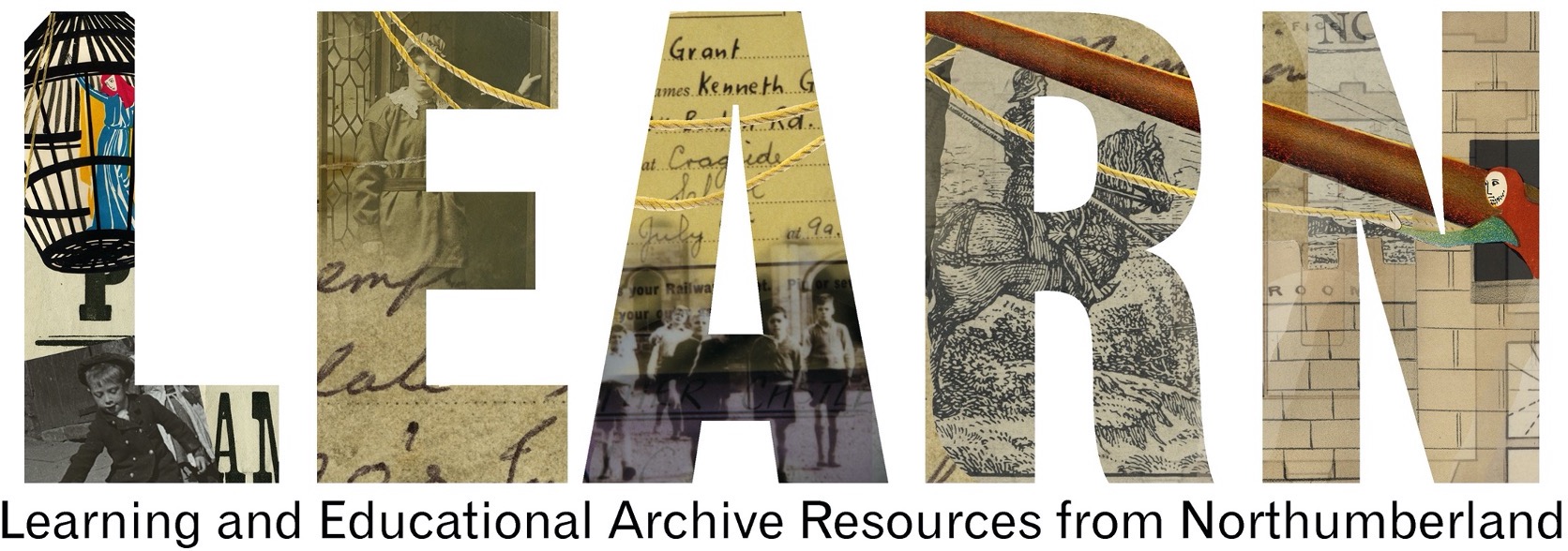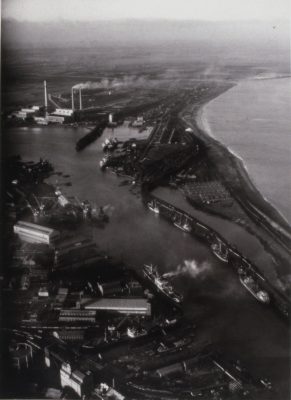Bombing of Blyth Oral Histories – Ralph D, recorded 2008
Reference: T/488, NRO 5525/07/28
Suggested age groups: KS1, KS2, KS3, KS4, Lifelong Learners
Subject areas: WW2, Air Raids, Bombing of Blyth, Rationing
Download Word Document
Download PDF
The photograph of Blyth Harbour has been provided by Blyth Harbour Commission.
Ralph D – T/488 – Part 1
Ralph D – T/488 – Part 2
CONTEXT
These sound files are extracts (short edited pieces) from longer oral history interviews preserved by Northumberland Archives. These interviews were made as part of a project to collect the memories of people who lived on the Northumberland coast.
For each person there is a short extract where they introduce themselves and other extracts where they talk about their experience of the bombing of Blyth during the Second World War.
Ralph was born in about 1924 in East Sleekburn. He mentions farming taking place near his home until the Spine Road was built near it.
Ralph mentions that the bombings in the area became more severe in 1943 He also talks about the incendiary bombs dropped on Blyth and evacuating the cinema on a Sunday night to get back to Sleekburn. He describes the cinema as being on the Market Place, although it was actually around the corner on Union Street. He talks about seeing the destruction caused by a land mine on his way home. He also mentions rationing and how little food people had.
ACTIVITIES
ACTIVITY 1
Background
Ralph was born in about 1924 in East Sleekburn. He mentions farming taking place near his home until the Spine Road was built near it.
Ralph mentions that the bombings in the area became more severe in 1943 He also talks about the incendiary bombs dropped on Blyth and evacuating the cinema on a Sunday night to get back to Sleekburn. He describes the cinema as being on the Market Place, although it was actually around the corner on Union Street. He talks about seeing the destruction caused by a land mine on his way home. He also mentions rationing and how little food people had.
SEE
See: When was Ralph born?
See: What types of bombs and attacks does Ralph mention?
See: How does Ralph describe air raids in the area in 1943?
See: What type of bomb damage does Ralph mention?
THINK
Think: Why do you think Blyth was bombed during the war? You could use a map of Blyth to help you identify Blyth’s geographical, environmental and industrial features.
Think: How do you think living in an area with “severe” air raids impacted people?
DO
Do: Create a map to showing Ralph’s route from the Wallaw Cinema on Union Street to his home in East Sleekburn via the ferry to Cambois.
Do: Create a drawing showing scenes of bomb damage that Ralph may have seen on his journey from the cinema to his home.
Do: Create a diagram showing the different type of bombs and weapons that the German’s used in air raids.
Do: Write a monologue from the perspective of someone living in Blyth during WW2 describing the effect that severe air raids had on them.
Resources
ACTIVITY 2
Background
Ralph was born in about 1924 in East Sleekburn. He mentions farming taking place near his home until the Spine Road was built near it.
Ralph mentions that the bombings in the area became more severe in 1943 He also talks about the incendiary bombs dropped on Blyth and evacuating the cinema on a Sunday night to get back to Sleekburn. He describes the cinema as being on the Market Place, although it was actually around the corner on Union Street. He talks about seeing the destruction caused by a land mine on his way home. He also mentions rationing and how little food people had.
SEE
See: How does Ralph describe rationing?
See: Which industry did Ralph describe taking place near his home?
THINK
Think: What is rationing?
Think: Why was rationing introduced during the war?
Think: Why did people have such little food?
Think: How do you think people responded to rationing?
Think: Did people grow their own food during WW2?
Think: What was Dig for Victory?
DO
Do: Research the foods and their quantities that were available during rationing and use this to create a weekly meal menu for a family of 4. Is this different to the weekly meals that a family of 4 might eat today? Think about the recommended daily calorie intake for people of different ages.
Do: Use Google Maps to look at Blyth. Note down any land that you think could be turned into allotments if rationing was introduced again.
Do: Either in person or by using a map, measure the area in square metres, or square kilometres, the land you could turn into an allotment.
Do: Choose some crops that were commonly produced during WW2. Using your calculation of the area of land for your allotment, how many of each crop could you produce? Think about the size of each crop.
Do: Using information from the Office of National Statistics, work out how many people would rely on food from the land you have chosen to turn into an allotment. Think about how big the land is, people’s proximity to the land, and other areas nearby that could be turned into allotments that they could access.
Do: Using your calculations of the number of crops you could produce and the amount of people the allotment would serve, how well could you feed the people and for how long? Think about daily calorie intakes, the nutritional values of different foods, the amount of labour you would need, and the time it would take the crops to grow.
Do: Create a ration book.
Do: Have a go at making some of the wartime recipes from the Recipes Past and Present website.
Do: Look at the Imperial War Museum’s collection of Second World War posters. Have a go at making a rationing poster.
Resources
ACTIVITY 3
Background
These sound files are extracts (short edited pieces) from longer oral history nterviews preserved by Northumberland Archives. These interviews were made as part of a project to collect the memories of people who lived on the Northumberland coast.
For each person there is a short extract where they introduce themselves and other extracts where they talk about their experience of the bombing of Blyth during the Second World War.
SEE
See: Why were these oral histories recorded?
See: Who took part in these oral history interviews?
See: What is included in the oral history extracts?
THINK
Think: What is an oral history?
Think: Why is it important to record oral histories?
Think: What is the value of oral histories?
Think: Who might use oral histories?
Think: How reliable are oral histories?
Think: What types of oral histories might be recorded?
DO
Do: Imagine you are about to interview a someone who experienced the bombing of Blyth for an oral history. Write down a list of questions or talking points that you might use to prompt them during the interview.
Do: Write down a list of events that have taken place during your lifetime that you think it would be important to create oral history records of.
Do: Write down a list of events that have taken place before your lifetime that you think it would be important to have oral history records of.
Do: Look at the British Library, British Library Sounds and Imperial War Museum websites. Can you find oral history recordings about the events from your lists?
Do: Think of an event that you have experienced first-hand. In pairs, interview each other about your chosen events and create oral history recordings.
Do: Imagine you are Ralph, choose one part of his oral history interview and write a diary entry from his perspective of one of the events he describes.
Resources
OTHER ONLINE RESOURCES
BBC Peoples War website, page with memories of Blyth: https://www.bbc.co.uk/history/ww2peopleswar/stories/00/a6825800.shtml
Port of Blyth website, page about the history of the port: http://portofblyth.co.uk/history/
Air Raids
Imperial War Museum website, page about air raid preparation: https://www.iwm.org.uk/history/how-britain-prepared-for-air-raids-in-the-second-world-war
Imperial War Museum, page about what to do in an air raid: https://www.iwm.org.uk/history/what-to-do-during-an-air-raid
Imperial War Museum website, page with example of a “siren suit”: https://www.iwm.org.uk/collections/item/object/30097186
War, State and Society website, page with Bombing Britain database: http://www.warstateandsociety.com/Bombing-Britain
Rationing
Imperial War Museum website, page about rationing: https://www.iwm.org.uk/history/what-you-need-to-know-about-rationing-in-the-second-world-war
BBC Teach website, page about rationing: https://www.bbc.co.uk/teach/rationing-could-the-ww2-diet-make-you-healthier/zjrmkmn
Oxford University history website, page about rationing (with sources and classroom activities): https://www.history.ox.ac.uk/rationing-in-britain-during-world-war-ii
Oral History
Website for Oral History Society, includes definition of oral history: https://www.ohs.org.uk/
University of Leicester information sheet on oral history (pdf). Although the language isn’t the most accessible it does discuss value and reliability of oral histories: https://www.le.ac.uk/ur/emoha/training/no1.pdf
Website for Glasgow Women’s Library, blog discussing oral history project, includes definition: https://womenslibrary.org.uk/2017/08/09/what-are-oral-histories-and-why-are-they-important/
British Library website, page for oral history collections: https://www.bl.uk/collection-guides/oral-history
British Library Sounds website, includes oral history recordings: https://sounds.bl.uk/Oral-history
Imperial War Museum website page for oral history collections, one of the biggest oral history collections in the country. Many can be searched and listened to online: https://www.iwm.org.uk/collections/sound


